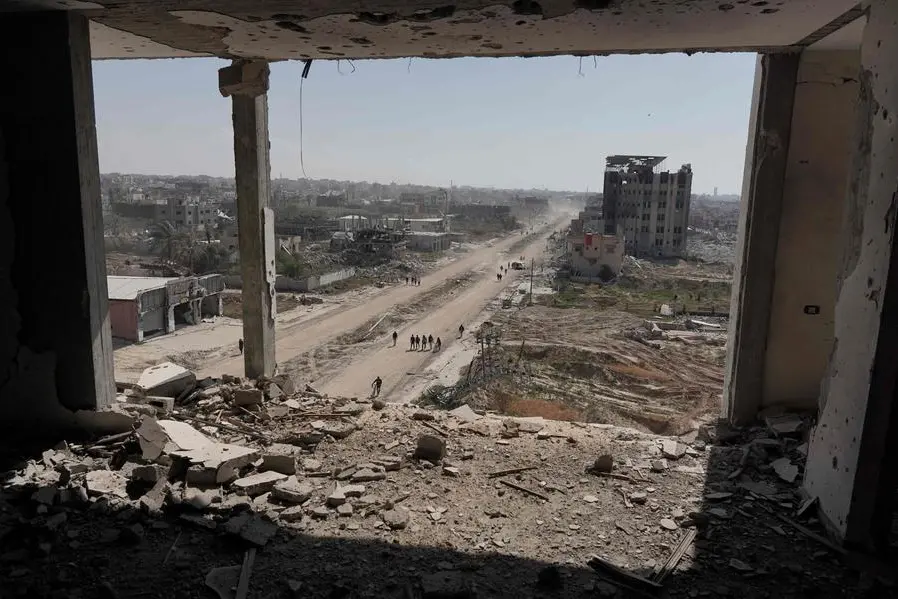PHOTO
Nicaragua hit out at Germany at the UN's top court Monday over its support to Israel, saying it was "pathetic" to give weapons to the Israeli government while simultaneously providing aid in Gaza.
"It is indeed a pathetic excuse to the Palestinian children, women and men to provide humanitarian aid, including through airdrops, on the one hand and to furnish the military equipment that is used to kill and annihilate them... on the other hand," Daniel Mueller, a lawyer for Nicaragua, told the court.
Nicaragua brought the case against Germany before the International Court of Justice (ICJ) to demand that judges impose emergency measures to stop Berlin from providing Israel with weapons and other assistance.
In a 43-page submission to the court, Nicaragua argued that Germany is in breach of the 1948 United Nations Genocide Convention, set up in the wake of the Holocaust.
"By sending military equipment and now defunding UNRWA (UN agency for Palestinian refugees)... Germany is facilitating the commission of genocide," the submission says.
"Germany's failure is all the more reprehensible with respect to Israel given that Germany has a self-proclaimed privileged relationship with it, which would enable it to usefully influence its conduct," added Nicaragua.
Germany will respond in court on Tuesday but has already hit back at the allegations.
Sebastian Fischer, spokesman for the German foreign ministry, told reporters ahead of the hearings that "We reject the allegations from Nicaragua".
"Germany has violated neither the Genocide Convention nor international humanitarian law and we will demonstrate this in full before the International Court of Justice," he said.
Nicaragua has also asked the ICJ to decide "provisional measures" -- emergency orders imposed while the court considers the broader case.
It is "imperative and urgent" the court orders such measures given that the lives of "hundreds of thousands of people" are at stake, it said in its submission.
- 'Appropriate reaction' -
The ICJ was set up to rule in disputes between nations and has become a key player in the war between Israel and Hamas militants that erupted after the October 7 attacks.
In a separate case, South Africa has accused Israel of perpetrating genocide in the Gaza Strip, charges Israel vehemently denies.
In that case, the court ordered Israel to do everything in its power to prevent genocidal acts and recently toughened its stance, ordering additional measures obliging Israel to step up access to humanitarian aid.
The court's rulings are binding but it lacks an enforcement mechanism -- for example it has ordered Russia to stop its invasion of Ukraine, to no avail.
Nicaragua has requested five provisional measures, including that Germany "immediately suspend its aid to Israel, in particular its military assistance including military equipment".
It also calls on the court to order Germany to "reverse its decision to suspend the funding of UNRWA".
Germany said in January it was halting funding pending an investigation into Israeli accusations that several UNRWA staff members took part in the October 7 assault.
Nicaragua said in its submission that "it could be comprehensible" that Germany would support an "appropriate reaction" by ally Israel to the October Hamas attacks.
"But this cannot be an excuse for acting in violation of international law," it said.
On Friday, German Foreign Minister Annalena Baerbock said Israel had "no more excuse" to delay aid getting into Gaza.
The bloodiest-ever Gaza war began with Hamas's October 7 attack on Israel that resulted in the deaths of 1,170 Israelis and foreigners, most of them civilians, according to an AFP tally based on official Israeli figures.
Palestinian militants also took around 250 hostages, about 130 of whom remain in Gaza, including 34 the army says are dead.
Israel's retaliatory campaign has killed at least 33,175 people, according to the health ministry in Hamas-run Gaza, while the United Nations has warned of "catastrophic" hunger.





















